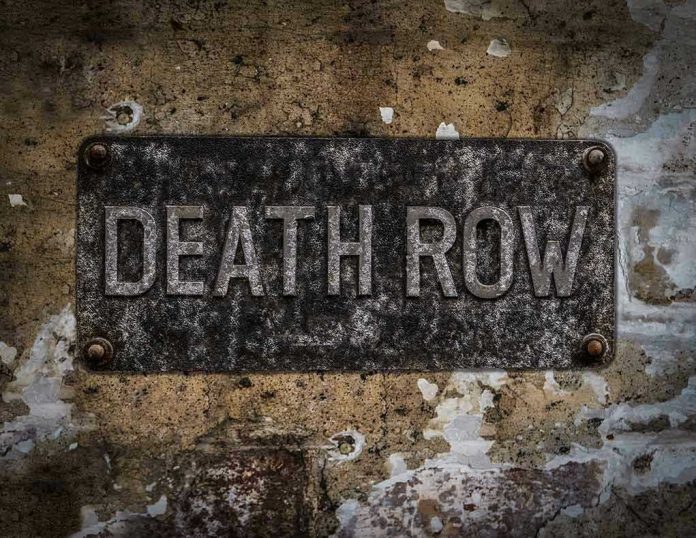
As the clock ticks towards August 19, 2025, Kayle Barrington Bates, a name long synonymous with one of Florida’s most chilling crimes, awaits his fate on death row.
At a Glance
- Kayle Barrington Bates was convicted of the 1982 murder of Janet White.
- Governor DeSantis signed Bates’ death warrant after his appeal was denied.
- Bates’ execution is scheduled for August 19, 2025.
- Florida leads the nation in executions in 2025, highlighting ongoing debates about capital punishment.
The Crime and Conviction
In 1982, the tranquil setting of a State Farm insurance office in Bay County, Florida was shattered when Kayle Barrington Bates broke in and kidnapped Janet White. Upon her return from lunch, she faced a brutal attack that ended in her abduction. Bates attempted to sexually assault her, ultimately beating and strangling her. He left her body in the woods, marked by thirty injuries. Bates was apprehended with her blood on his clothes and her ring in his pocket.
Bates faced trial, resulting in a conviction for murder, kidnapping, attempted sexual battery, and armed robbery. Despite the passage of over four decades, Bates continued to appeal his conviction, reaching as high as the U.S. Supreme Court, which refused his final appeal on June 30, 2025. Governor Ron DeSantis signed the death warrant, setting the execution for August 19, 2025, at Florida State Prison.
Legal and Ethical Debates
Florida, in 2025, stands at the forefront of capital punishment, leading the nation in executions. The state’s aggressive use of the death penalty is a focal point in ongoing legal and ethical debates. Advocates argue that such measures provide justice and closure for victims’ families, a sentiment echoed by the family of Janet White, who have waited decades for this resolution.
Opponents raise concerns about the lengthy appeals process, the risk of wrongful convictions, and the moral implications of the death penalty. The economic costs of maintaining death row inmates and the extensive legal battles further fuel the debate, raising questions about the true efficacy of capital punishment as a deterrent.
Stakeholders and Influencers
The case of Kayle Barrington Bates involves a complex web of stakeholders. Governor DeSantis, by signing the death warrant, underscores his commitment to law and order, a stance that resonates with many Floridians. The Florida Department of Corrections, tasked with carrying out the execution, prepares for the procedure as Bates’ legal avenues have been exhausted.
The victim’s family, long waiting for closure, views this as a moment of justice. Meanwhile, legal professionals and advocacy groups remain divided. The Death Penalty Information Center highlights the state’s execution rate, pointing to Florida as a case study in the broader national conversation about capital punishment. These dynamics reflect a larger societal discourse on justice, morality, and the role of the death penalty in modern America.
Sources:
Death Penalty Information Center







